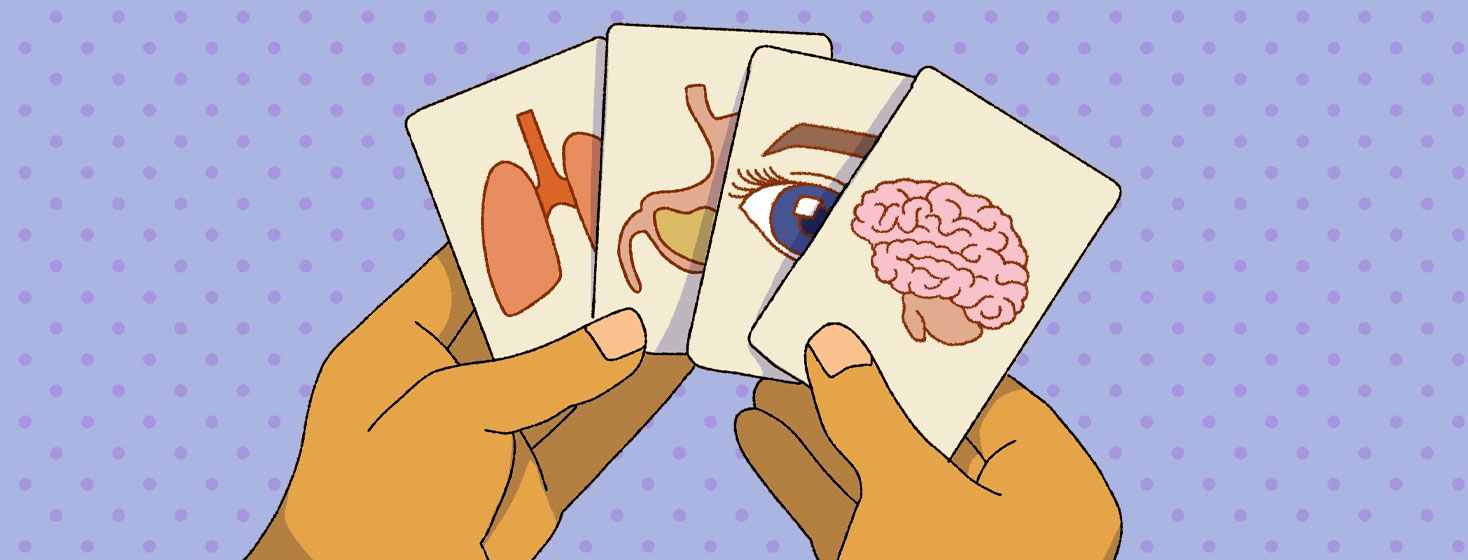Living With Multiple Diagnoses
You would think that having a rare, chronic illness would be enough, but most of us have found that when there is 1, there is often 2 ... or 3 or even 4 or more diagnoses that come along with it.
I was unsure what condition was causing my symptoms
While I was being diagnosed for myasthenia gravis (MG), they did an MRI to rule out multiple sclerosis. That MRI determined that I also had a rare brain tumor called a meningioma, also located in a rare spot. Although benign, anything inside your brain that is growing can have significant impacts to your health, including strokes and even death.
Based on the location, it was only causing mild symptoms at that time and they couldn’t even confirm 100 percent those were due to the tumor. I had symptoms like tinnitus in my right ear, ear clogging sensations, and headaches. Although no immediate treatment was needed, we would have to watch and follow.
In addition to the meningioma, and after being diagnosed with myasthenia gravis, I had symptoms that didn’t quite line up with the typical symptoms I was told to expect. Nonetheless, I always attributed those symptoms to MG anyways. I also couldn’t be sure if the symptoms I had were because of the brain tumor or if they were caused by MG. The diagnosis was so new and the disease made me feel so awful that I just assumed it was my body being defeated and the symptoms I was having had to be one of the 2 above.
To say it is challenging is an understatement
After some time, I ended up switching neurologists. My new doctor was one who specialized in MG and knew all too well that this disease often comes hand in hand with others. After an extensive physical and blood tests, we figured out together that I also had postural orthostatic tachycardia syndrome (POTS), Ehlers-Danlos syndrome, and antibodies for Hashimoto's disease. Years later, I would also be diagnosed with mast cell activation syndrome.
To say that managing multiple illnesses has been challenging would be an understatement. The most challenging, however, is trying to manage the symptoms of the other diseases when the majority of the medications should be avoided in MG. For example, some of the symptoms with POTS could be controlled with beta blockers but those are contraindicated in MG so we avoid them.1
When the meningioma grew, I had to consider how a craniotomy (brain surgery) would effect MG. For someone without multiple underlying conditions, this wouldn’t have been such a hard choice but I had to opt not to have the surgery and do radiation instead. It was too risky for someone with MG.
Things that help me manage multiple conditions
A couple of things have helped me manage multiple diseases, for example, tracking my symptoms and my triggers. I did this for years. What I found were patterns that allowed me to separate which one caused which symptom. One of the main takeaways from that is I’m now able to tell the difference between "air hunger" in POTS and weak respiratory muscles with MG. That has calmed a lot of the anxiety.
On top of the that, I’ve learned that they usually flare together. There are occasions where one disease stays dormant and the others misbehave, but for the most part, at least 2 will act up at the same time. Most of the triggers are the same in MG and POTS.
For example, heat aggravates both. That means that I’m able to be proactive about reducing the chances of either of those flaring when it’s hot.
While it can definitely be challenging to manage multiple illnesses, time and experience is one of the greatest blessings that has allowed me to navigate living with multiple diagnoses. It’s still a work in progress but I’ve learned to take one day at a time!

Join the conversation